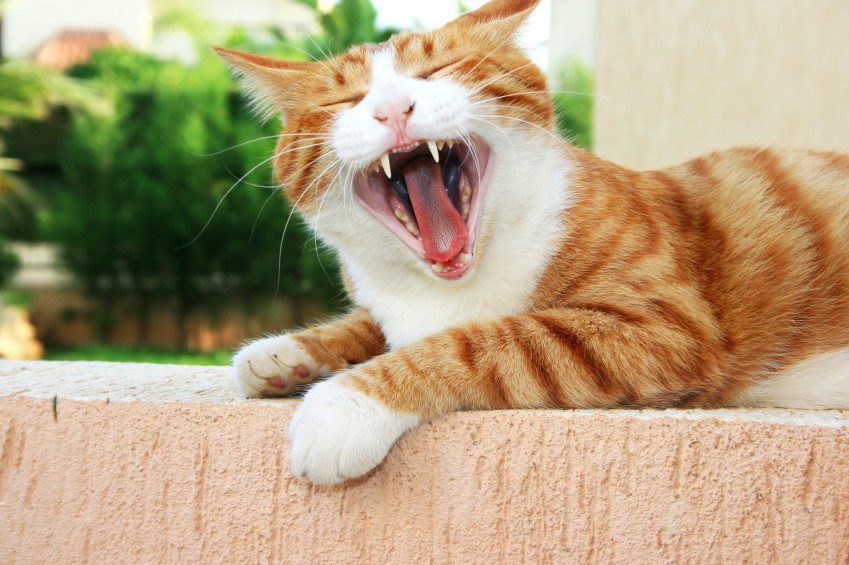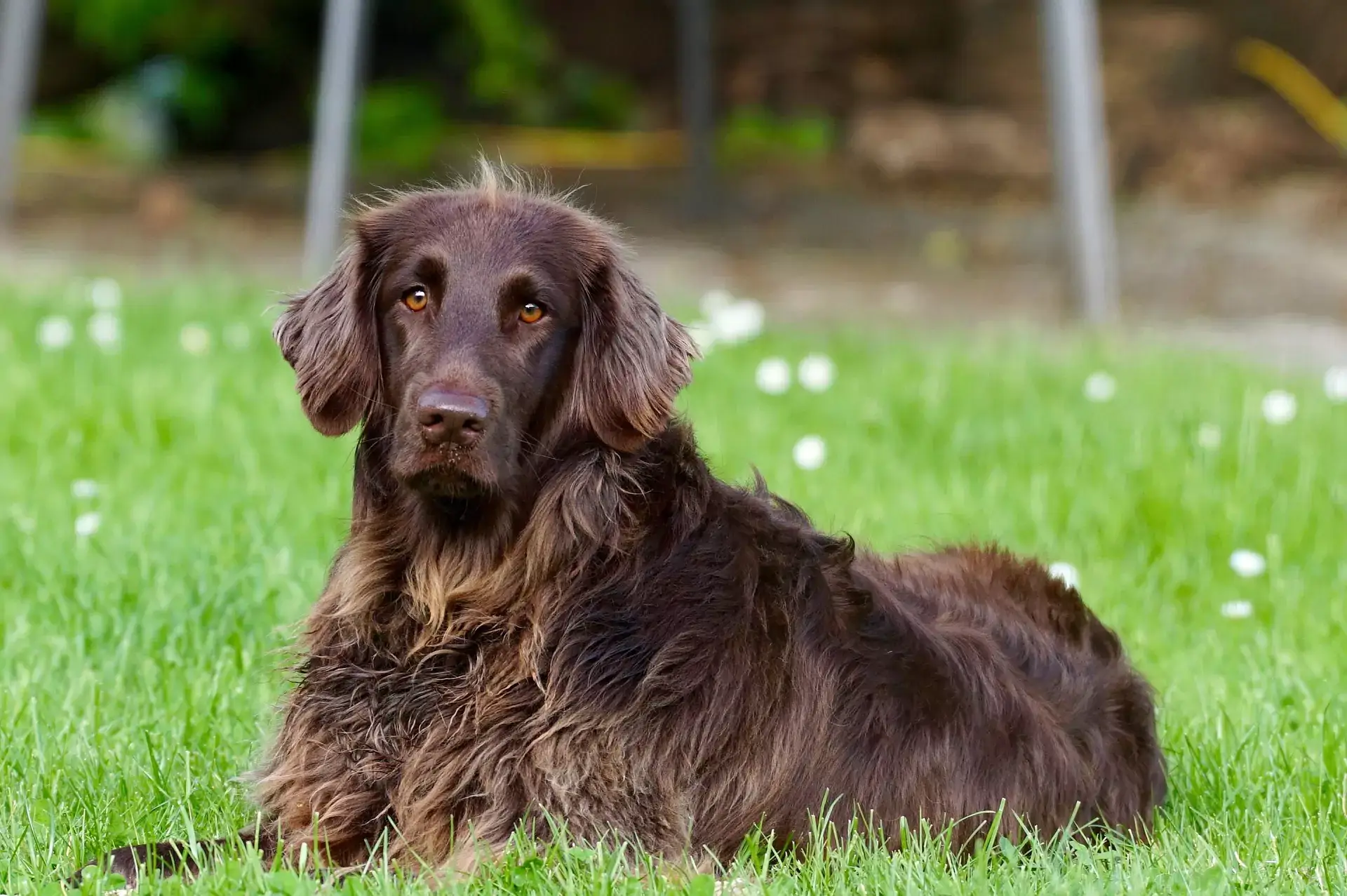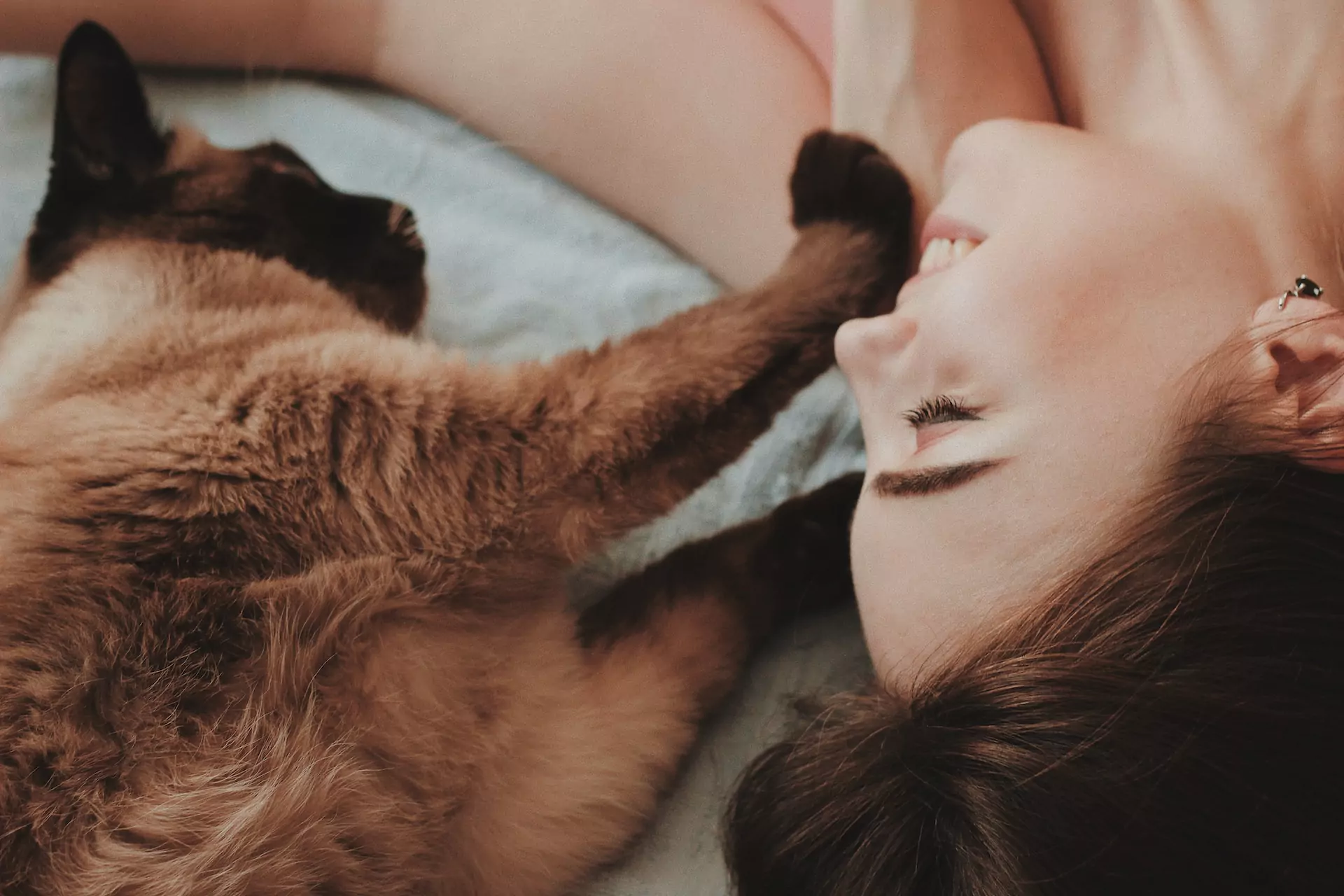Causes of Tooth Loss and Dental Problems in Des Moines Cats
November 14, 2013
Animal Dental Care – Dentistry for Cats
By Dr. Nancy Peterson, Ingersoll Animal Hospital Des Moines, IA
Cats will have 2 sets of teeth in their lifetime. They have 26 temporary or deciduous teeth that erupt at about 4 weeks of age and typically have a full set of very sharp baby teeth by 6 weeks of age. There should be 30 adult teeth in place around 6 months of age and these should be permanent teeth. According to Dr.Daniel Camicheal, a dental specialist at the Center for Specialized Veterinary Care in Westbury, NY, about 90% of cats will experience some sort of dental problem in their lifetime. In many of the cases, the problem can only be treated by extraction of the problem tooth or teeth.
Four types of dental disease cause most of the cat mouth problems found on vet examinations which may require extraction of one or more of the teeth.

- Periodontal disease is the most common mouth problem seen by cat veterinary dentists in Des Moines. 70% of cats have evidence of periodontal or gum disease by 3 years of age. Periodontal disease is a disease of the tissues that surround and support the teeth that starts when bacteria in the mouth form plaque that sticks to the surface of the teeth. Bacteria and enzymes in the plaque will eventually cause an inflammatory response to the gums that, if left untreated, will lead to inflammation of the gums (gingivitis) and destruction of the surrounding tissue or bone. In cats, early stages of periodontal disease is reversible. If left untreated, advanced periodontal disease can quickly become a painful condition were extraction is the only reasonable treatment option.
- Tooth Resorption is another dental problem commonly found by vets in cats. This problem has previously been known by several names, including Feline Oral Resorptive Lesions (FORLs). For reasons that we do not fully understand some cats will have painful lesions caused by reabsorption of their adult teeth. With adult teeth this undesired resorption can start anywhere on the root of the tooth. In all cases of tooth resorption the only rational treatment is extraction of the affected teeth. There is no way to repair or halt the damage to these teeth and they either are or will be a source of significant inflammation and mouth pain. While we do not fully understand the cause of this problem, vets do know that cats that develop one lesion are prone to develop more.
- Feline Chronic Gingivo-Stomatitis (FCGS) is a relatively uncommon but very debilitating condition in cats. This disorder is characterized by mouth inflammation which is way out of proportion for the amount of plaque and tartar present. The inflammation extends into areas with no teeth and in to the back of the mouth and under the tongue. This painful condition persists or rapidly returns after a thorough dental cleaning or courses of oral medication. Although we do not know the exact cause, we do know that cats with Feline Leukemia (FeLeuk) and/or Feline Immunodeficiency Virus (FIV) are predisposed to FCGS. Evidence does support that is an abnormal local immune response of unknown origin. Since we do not know the exact cause, we cannot develop a cure. However we can offer relief to a majority of these cats by extracting all of the teeth and any retained root fragments. This treatment may sound severe but it is the best chance of offering a comfortable life. Attempting to manage this with medication results in frustration and continued pain for the cats.
- Fractured teeth may be caused by trauma or occasionally cats will fracture teeth by chewing on hard objects. The canines (the long teeth in front) are the most commonly fractured teeth found during exams on cats by vets at Ingersoll Animal Hospital. Doing nothing about a fractured tooth leaves a tooth that is painful and a possible avenue of infection. Extraction may be necessary.





